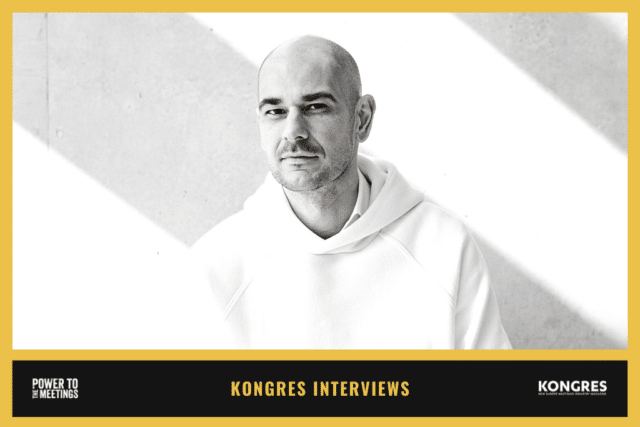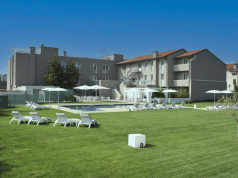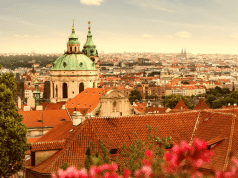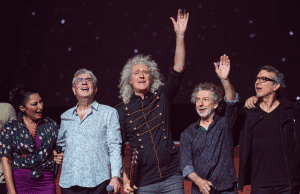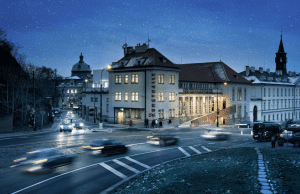“The past year turned out to be our most successful year since the inception of Shift conference”
Q: Is there anything that can still surprise you in the current situation? How have you reacted to the situation from a business and personal perspective?
There is always something that can surprise you. Hopefully, though, this entire pandemic situation is coming to an end. After all, we can only do two things – adapt to the situation on the market or wait, do nothing and hope that everything will be fine. I always choose the first option, i.e. adaptation.
Q: What are the wishes of your clients – do they wish live events to return, or is the scale in favour of digital events?
There is definitely a huge desire for live events we attended before. The huge interest can be undoubtedly confirmed by the number of interested sponsors and speakers.
Q: We cannot overlook the question regarding the future of the industry. Is the future of the industry bright? Do you personally believe it will come back stronger after the crisis?
Every crisis leads to change, and at the same time, leaves space for tremendous growth. Not only is the event industry getting stronger, but all industries are also strengthening after the crisis. Unfortunately, some companies fail to survive such blows. Nevertheless, I think we will all be pleasantly surprised when the pandemic passes, leaving behind record growth.
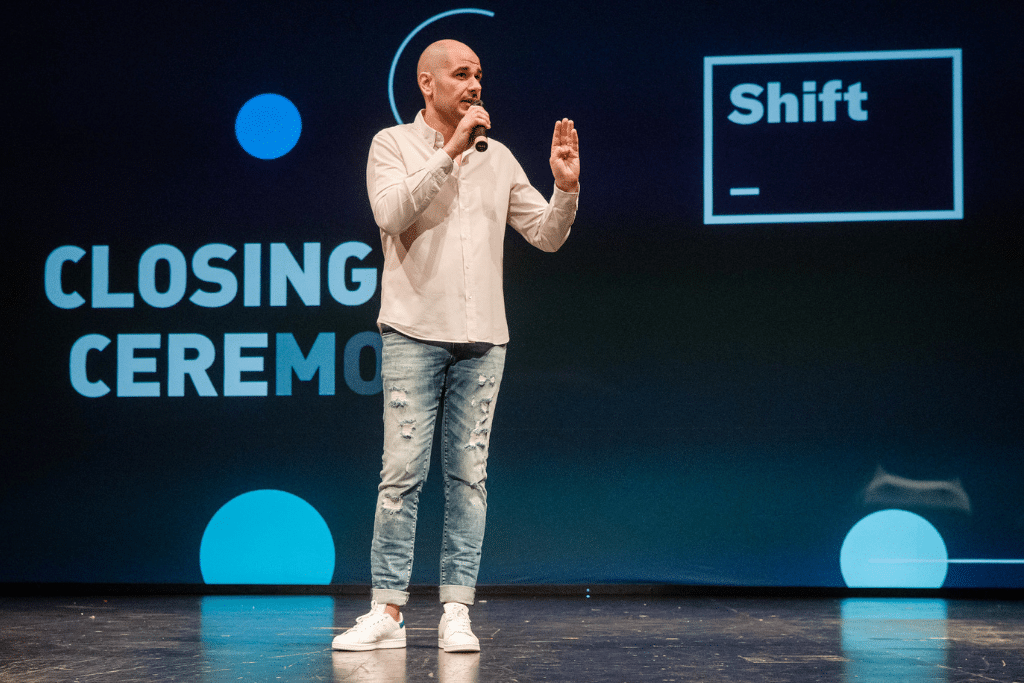
Q: Can you give us a good practice case of organising events during the corona crisis?
We can pride ourselves on the organisation of our Shift conference in Split last summer. Not only did we attentively follow all the precautionary measures, but we also went a step further in all in terms of safety. We transformed the entire conference from the usually closed type of event into a summer festival. The conference was held completely outdoors, in the beautiful Sustipan Park, where participants, alongside distinguished keynote speakers, enjoyed the beautiful views of the surrounding sea and islands.
Q: What is the best-case scenario for events in the second half of 2021? How will you ensure that events will be executed safely?
The most optimistic scenario would be that Croatia reaches a sufficient vaccination rate, with clear measures from the authorities. If that should happen, events will restart in their entirety.
Q: How effective were measures put in place by the government in your country? From the viewpoint of an event organiser, what did you expect?
What is needed is for the governments of all countries to clearly define their restrictions and measures. For instance, whether a test, a vaccination certificate or something else is required before attending an event. This is very important for event organisers, as they can consequently know exactly when and how to plan events. This would also allow the event industry to continue operating.
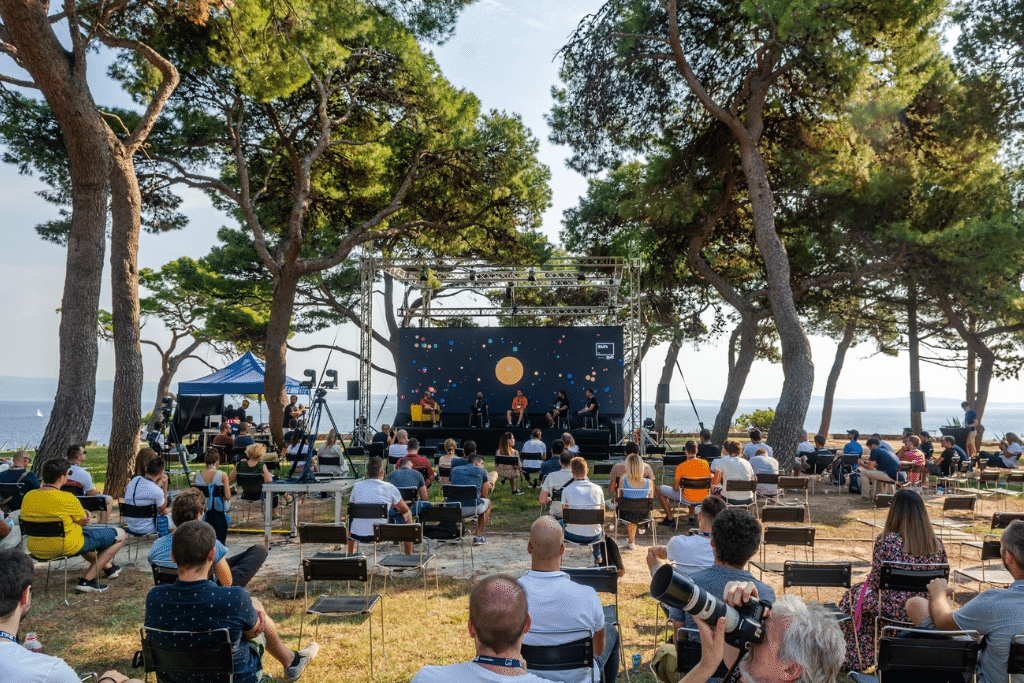
Q: How has the public opinion regarding events and event organisers changed during the corona crisis?
I can only share my own experience. Everyone was positive about the organisation of the last Shift Conference. They had an understanding of the situation we organisers found ourselves in, and many helped and supported us wherever and in whatever manner they could.
Q: It seems that the crisis is creating a gap between the creative and logistic part of the meetings industry. How do you see this situation?
At Shift, during the crisis, we wanted to engage, and ultimately initiate all of our partners through all the events we organised – virtually or physically. Of course, there was less need for logistics at virtual events. We tried to work with our partners as much as we could to help each other out as much as possible.
Of course, with virtual events, there was certainly less need for logistics. However, we tried to work with them as much as possible on other things in order to help them as well.
Q: During these times, what does your regional area represent to you? In this context, how does the slogan “think globally, act locally” apply?
Specifically in our case, last year every project we did was live. Not only did we have to operate locally, but hyper-locally. Hardly anyone outside the city would attend an event. Yet, at the same time, we had to organise the event as if it were a global event, and through virtual channels, we attracted a global audience. Thus, we came to the number of 500 participants, predominantly coming from Split, while several thousand joined us online from every corner of the world.
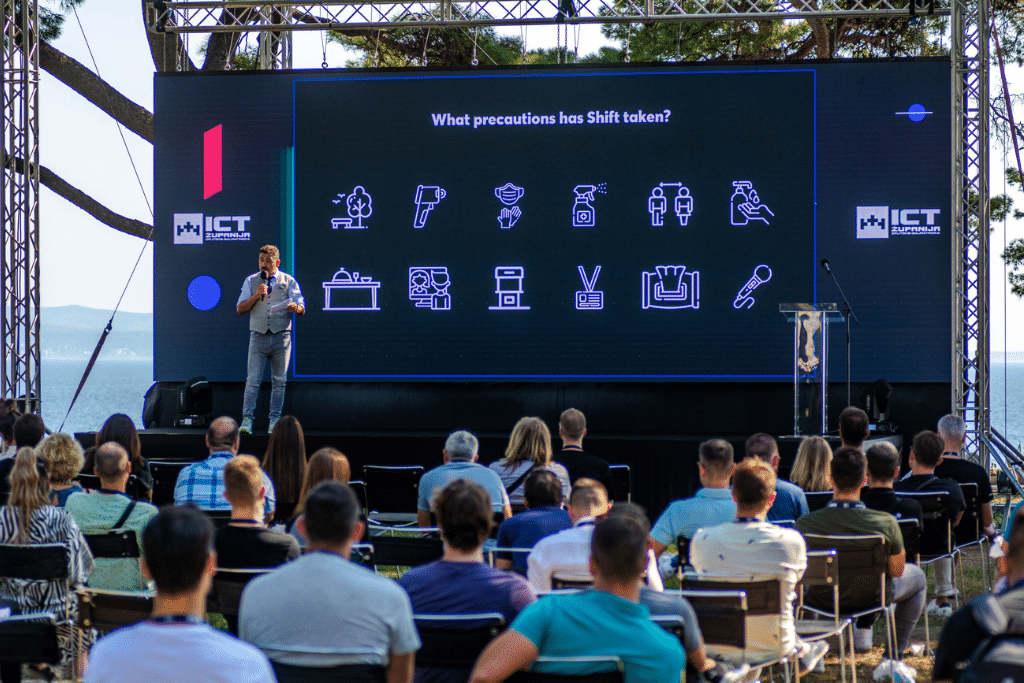
Q: What do you see as your greatest achievement? What are you particularly proud of, and how would you describe your exit strategy in a few words?
I am most proud of the fact that regardless of all the obstacles along the way, we all pulled through together as a team, decisively and bravely. Not only did we get through the past year, but it turned out to be our most successful year since the inception of the conference! It was not easy. In fact, it was the hardest year, but we succeeded. I am especially proud of that. In addition, we have been acquired by the globally successful company Infobip and are now planning our future together.


